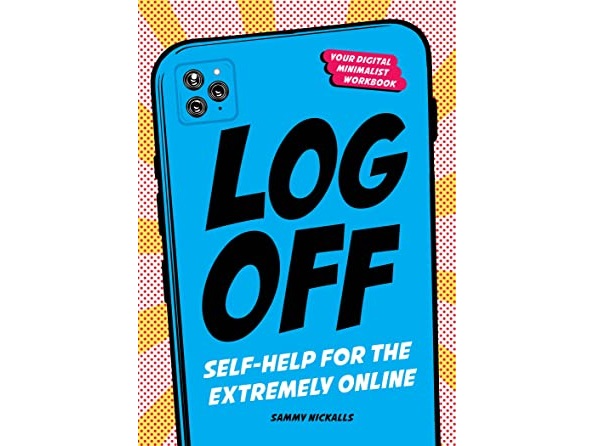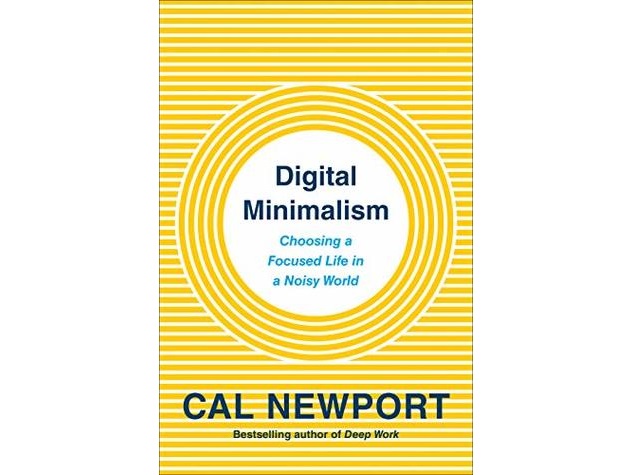“I’ve always had a sort of intuition that for every hour you spend with other human beings you need x number of hours alone. Now, what that x represents I don’t really know, whether it be two and seven-eights or seven and two-eights, but it’s a substantial ratio.”
– Glenn Gould
The past two and a half years have been an odd experience for me (and – without presuming to speak for anyone else – I’d venture to say for all of us). Since the beginning of the pandemic, we have lived in greater isolation but with greater digital connectivity, muddying the waters of what it really means to be alone. The past few weeks have included some of the most interaction I have had with other human beings in person since February 2020, and the resulting thoughts and feelings have left me in a strange place emotionally.
Energy Drain
I’ve written before on this blog about how starting a new job at the beginning of the pandemic often left me wondering if it was the job itself or the nature of virtual work that had me so exhausted all the time. In reality, it is probably a combination of both, as my day-to-day responsibilities and interactions with coworkers had to shift in multiple fundamental ways all at once.
Certainly being the head of an organization is tiring on its own: if there are unpopular but necessary decisions to be made, that’s your responsibility; if something goes wrong, that’s your responsibility; if someone on the team is going through a rough patch (and, indeed, we all were in spring 2020), that’s your responsibility. And I’m not saying any of this to complain – I was very clear on what I was signing up for, and I still, on a very fundamental level, genuinely love my job. That said, I am becoming aware that it requires an unprecedented level of very intentional self care.

Image credit: [1]
While I had never run an organization before, I had run programs – managing staff, networking, developing business opportunities, speaking to the press – and I have always enjoyed that. I never found that tiring before – even after 14 hour days at conferences, there was still some level of exhilaration. Maybe it’s my increasing age or the added responsibility of knowing that the buck stops with me, but maybe it’s also the new standard vehicle for interaction that I find so tiring.
Virtually There
The first time I had ever heard of Zoom was when I used it to interview for my current job. Christian and I were in Japan, and I dialed in at 11pm from Sapporo to meet the board of my organization, who were joining at 9am on the east coast. I had used Skype to video chat with my parents when I lived in Japan, but that was rarely more than 30-60 minutes a day. I had used Google hangouts to plan events with my MBA alumni group on the rare occasions we couldn’t meet in person, but – again – that was more the exception than the rule.
Pre-pandemic life was peppered with virtual interactions, but there was always a balance (at least for me) with in-person time with coworkers and friends, as well as time that involved little to no technology at all. I was not ready for what quickly became the new norm: having as many as eight consecutive hours of video meetings at work followed by more hours of virtual social time in the evening. For someone who – pre-pandemic – used to have hobbies and social activities scheduled for every night of the week, I was shocked to find how quickly I shifted from disappointment to joy over an unscheduled evening during which I didn’t have to virtually “be anywhere” or talk to anyone. I remember asking myself: “after all these years, am I really an introvert after all?”
Fast forward to the past few weeks, and I am confused yet again. My company celebrated our 10th anniversary by hosting a 100-person dinner. We followed that up by participating in the inaugural Global Clean Energy Action Forum, which welcomed 6,000 attendees from 34 countries to Pittsburgh for a mind-bogglingly expansive series of conference events, tours, and receptions.[2] If I find eight hours of video meetings with members of my team (while sitting in a comfy chair and wearing pajamas) to be tiring, the last two weeks should have destroyed me – but they didn’t; quite the opposite, in fact. I began to think that maybe I was still an extrovert, despite two-plus years of evidence to the contrary.

Image credit: [3]
Intentional Connectivity
As far as interactive technology has come in the last few years, it is still no substitute for in-person interaction. And as grateful as I have been for the opportunity to get work done remotely and to see family members from afar on holidays, I still have to wonder what the pandemic would have been like if I hadn’t spent it attached to an electronic device that provided a gateway to the outside world. In the search for connectivity during the pandemic, we have opted for quantity over quality when it comes to interactions with our friends, and as a result have come up short on satisfaction.
Last month, while driving to meet friends at a brewery for a concert, I heard a story on NPR about the concept of digital minimalism, which is the practice of limiting the constant connectivity to which we have become accustomed and instead being more mindful about how and when we connect.[4] The concept is not a blanket ban on apps and social media, which I have done in the past and thoroughly enjoyed until I fell right back into old habits. Instead, it is – very similar to Marie Kondo – becoming aware of what actually improves your life and what does not.
There were two books I discovered as a result of being in the car at the right time. The first was mentioned in the NPR piece itself, Log Off: Self-Help for the Extremely Online,[5] which serves as a workbook to help individuals understand how they interact with digital media and build more mindful habits. I have not read it, but reviews indicate that it may be geared more toward younger audiences, particularly those that grew up with smartphones in-hand.
The other book I found as a result of searching for the phrase “digital minimalism” once I decided to write a blog post on the subject. The book of the same name, Digital Minimalism: Choosing a Focused Life in a Noisy World,[6] describes an approach very similar to what I experienced with Whole30 [7] and Marie Kondo [8]: remove everything and add things back based on what works for you. In this process, you define for yourself what your goals and priorities are, and then you assess – critically – what technologies are available to help you achieve those goals… and whether the ones you’re using are the best ones to achieve that purpose.

Theory vs. Practice
It was fascinating to me that as I read this book, I had a desire to try out the process, but even stronger was the desire not to. The more I thought about what a more intentional digital relationship might look like, the harder my dopamine-craving brain pushed back and quickly started assembling a list of excuses for why I couldn’t do it yet: I need to be able to post pictures when we go to Italy next month, I need to be able to keep in touch with people over the holidays, etc. While I am fortunate enough to say that I’ve never been physically addicted to any substance other than caffeine, addiction is exactly what those excuses sound like to me.
I do want to try out the process, but I will be completely honest and admit that I am experiencing more fear of what I will lose than excitement over what I will gain. I will likely try it out in early 2023, as part of January or Lent… and I also intend to write about the process for this blog, which I’m not sure will actually support the goal of disconnecting. Since 2023 is still a way off, I would like to take some small steps before then to be less connected to my phone at all times, and I think committing to more meaningful in-person time with others may help in that department.
It was interesting to note that after several days of being out in public and interacting with other humans in person, I was content to be less connected on Friday night. It had been literally years since the last time I sat down with Siegfried and a glass of wine, just listening to music, without needing to fill the time with anything else – and it was pure bliss. I also know exactly how long it had been since the last time we did that… because I still felt the need to post about it on Facebook.
~
Have you struggled with limiting your online time? Do you have any suggestions on how to succeed? I would love to hear about them below.
Thanks for reading!
[1] https://www.goodreads.com/en/book/show/59241591-log-off
[3] https://www.goodreads.com/book/show/40672036-digital-minimalism
[4] https://www.npr.org/2022/08/27/1119821492/life-kit-how-to-log-off
[5] https://www.goodreads.com/en/book/show/59241591-log-off
[6] https://www.goodreads.com/book/show/40672036-digital-minimalism
1 Comment
Galen · September 25, 2022 at 1:48 pm
Uff da, I feel called out. This is something that’s really hard for me. I know I spend way too much time glued to my phone, which is to the detriment of other things – reading books and magazines, hobbies, taking care of projects around the house, intentionally engaging with my family, etc. – and it’s really hard to put the phone down, even when I’m mindlessly scrolling and bored. I find that when I’m busy with other things or somewhere with no reception, such as at our cabin, I don’t miss using my phone and being on social media, yet I’m quick to pick it back up as soon as I can to check in on what I missed. If you find any quick, easy fixes, I’m all ears.